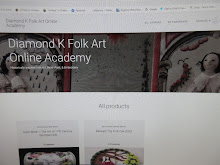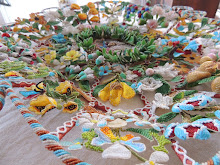 ....just think of all the years it has taken to get that pen in there! Our Colonial Ancestors did not have it so easy. Have you ever taken a moment to think what writing in the 18th century entailed? Actually, most people could read, but could not write. Teaching was done at home, and women most often taught the children how to read from the Bible. But to learn how to write, one had to seek out and purchase the instruction from a Writing Master....nearly always always a man. Many men made their living as copyists and accountants and such, in an era where anything written was done so by hand. Girls were taught to write along with sewing, as a form of status and gentility. Coming on the end of the 18th century and into the early 19th, the very rich and upper class adopted 'sloppy' handwriting as a way to distinguish themselves from the working classes, as by this time, so many used good penmanship as their sole source of income.
....just think of all the years it has taken to get that pen in there! Our Colonial Ancestors did not have it so easy. Have you ever taken a moment to think what writing in the 18th century entailed? Actually, most people could read, but could not write. Teaching was done at home, and women most often taught the children how to read from the Bible. But to learn how to write, one had to seek out and purchase the instruction from a Writing Master....nearly always always a man. Many men made their living as copyists and accountants and such, in an era where anything written was done so by hand. Girls were taught to write along with sewing, as a form of status and gentility. Coming on the end of the 18th century and into the early 19th, the very rich and upper class adopted 'sloppy' handwriting as a way to distinguish themselves from the working classes, as by this time, so many used good penmanship as their sole source of income.
 I love to write. In our age of computers and email, the fine gift of a handwritten letter is becoming more and more obsolete....It is fun to imagine just what our ancestors would have thought about how we communicate now a days. What would Thomas Jefferson have thought about the nearly infinite array of writing pencils and pens available in the stores now??? Wonder which one he would have picked.....just think of our Constitution being written with a Bic Ballpoint.........or hummmmm....a sharpie!?
I love to write. In our age of computers and email, the fine gift of a handwritten letter is becoming more and more obsolete....It is fun to imagine just what our ancestors would have thought about how we communicate now a days. What would Thomas Jefferson have thought about the nearly infinite array of writing pencils and pens available in the stores now??? Wonder which one he would have picked.....just think of our Constitution being written with a Bic Ballpoint.........or hummmmm....a sharpie!?Metal writing tips, or nibs, did not exist until the middle of the 1800s...before that, if you wished to write anything, you had to carve your own from a feather quill~ usually from a goose or crow, with a little penknife. Speaking of penknife, this wouldn't have been the cute little consolidated thing that folds up into your pocket today....it would have been just a straight razor blade.
With newly cut quill in hand, next you would reach for the bottle of ink right? Not so quick. Ink did not come ready made in a bottle! Writing Masters did not only teach the art of penmanship, but also mechanics of writing, one of them being how to mix ink~ from what powders, and in what consistencies.....
I prefer to use black India Ink...it flows wonderfully from my modern steel nib, and dries quickly with a wonderful sheen to it.
Before actually writing on a paper, which in itself was very....very expensive, the paper would have to be 'sanded', a term used to treat the paper with powdered pumice or sandarac so the ink would not soak into it. (We want the ink to sit nicely on top of the paper) Some also used a blotter~ a piece of felt normally, to place directly over the last few written words, to soak the excess ink up off the writing...to help it dry quicker, with no blotches.
 Above, my black India Ink, and 2 of my early seal wheels. Both are c1820's, and have a selection of verse and characters one could pick to use as letter seals. The brass one has 9 different seals, the silver has 8. Seals were used not only to close the letter for privacy, but they also served as an identifying mark of the writer, as many people used only one seal.
Above, my black India Ink, and 2 of my early seal wheels. Both are c1820's, and have a selection of verse and characters one could pick to use as letter seals. The brass one has 9 different seals, the silver has 8. Seals were used not only to close the letter for privacy, but they also served as an identifying mark of the writer, as many people used only one seal.It should be now easy to realize that writing in the 18th century, and well into the 19th, was a drawn out affair....which is maybe why so many felt if they could read, that was good enough! One had to set aside a time to write, (if they partook in its charms other than for work), and this was often in the evening hours....so it is safe to say that writing also came with the expense of the light needed to produce it~ I mean, how can you scribe lines on your paper to keep your lines of writing straight in the dark? Candles were very labor intensive and time consuming to make, and one did not burn them carelessly.
I hope I have broadened your appreciation for early writing~ next time you read from an early diary, or letter, I hope that you will not only cherish its message, but also appreciate the work and skill that went into writing it in the first place.






















2 comments:
The thought of Thomas Jefferson with a "sharpie" gives me cold chills!! By the way, I wonder what brand of pen our new President is using???? Disposable or refill??? Ballpoint or fountain??? Permanent or smuggy stuff??? Black or blue ink??? Things to ponder.......
LY, Mom
Rachel, thank you so much for that little lesson!!!!! Oh how interesting that was! I loved reading it. I had a wonderful early pewter sander for sale in my store, did you see it? I also have an 18th century rare manuscript, and although I just love it I have a new appreciation for it. Thank you so much for your post. I love your blog! Always a real pleasure.
Carole
Post a Comment